From a privileged viewpoint, Rafael Bielsa has been witness to one of the most successful vaccination processes in Latin America, as well as one of the most virulent Covid-19 rebounds. At the same time he has sufficient distance from Argentina’s reality to speak of it with commitment and serenity. In a feature-length interview, he discusses Sebastián Piñera and says that the opposition needs Cristina Fernández de Kirchner as a target for their criticism.
Has there been an evolution in the thinking of the Alberto Fernández you knew some years ago, and him today?
I detect an evolution. I worked with Alberto from the moment we were both in the Cabinet between 2003 and 2005. Since then it’s been a very different world. Alberto has accompanied this change which has yet to define itself and nor does he sit on a work in progress. When Alberto paid his state visit to Chile, it seemed to me, from what we could converse, that there was a thinking far more geared to the circumstances which we are undergoing.
Is there any difference between the worldview of the president and that of Vice-President Cristina Fernández de Kirchner?
With the vice-president I’ve talked less about international politics. I haven’t really seen any statements of hers related to international politics. Perhaps some things linked to the International Monetary Fund, which are more common sense than an appreciation of the world. If your question aims at the exit from the Lima Group, interpreting it as a gesture in favour of Nicolás Maduro, I personally believe that the Lima Group did absolutely nothing to resolve the situation in Venezuela. I live in a country, Chile, which I would not say has a problem with Venezuela but does have a great many immigrants from that country. You’re in contact with Venezuelans and you talk to them. The Lima Group has not been able to produce one episode to improve the situation in Venezuela and on top of that, it added [opposition leader] Juan Guaidó to the group, a landless politician without any legitimacy in the ballot-box. But furthermore, we Argentines never went to their meetings nor signed their resolutions. We just brought that situation out into the open. I agree with that. I criticised the Lima Group from the first moment, including a couple of articles in your newspaper Perfil.
It’s not a way of forming part of the solution, it’s far more a way of being part of the problem.
You said: “It was fundamental to leave the Lima Group, created in order to get Venezuela out of its mess and in its first statement called Nicolás Maduro a dictator, thus ruling itself out as a mediator.”
I’ve always thought that. What moves like blockades or the Lima Group do is to create mental blocks in politicians who feel under attack while aggravating the problems of the vast majority of people who are having a really bad time in Venezuela. What percentage is the responsibility of Maduro and what percentage is the blockade? If Venezuela approaches Iran, you have to ask if that is Maduro’s responsibility or if he was left no alternative. Rather than that system, I believe far more in the path initiated by the European Union countries – that seems to me more sensible and productive. Perhaps the region has no memory. In 1982 or 1983 the region came up with the Contadora Group, which I haven’t heard anybody vindicating as a solution for a long time. At that time it ended Central America’s civil wars which had caused almost half a million deaths, conflicts stretching back up to 30 years in some countries. They did that in three years with some back and forth and they did it with Ronald Reagan as the president of the United States. That’s a productive way of solving things. Our solutions, forms of dialogue and self-respect are not expressed by the Lima Group.
The exit from the Lima Group was almost simultaneous to the controversy between Alberto Fernández and Uruguayan President Luis Lacalle Pou, when the latter said that Mercosur could be ballast. What is your evaluation of that clash between the two presidents and of Mercosur in particular?
Let’s look at the clash first, thinking back to 2003 to 2005, the exit from default, the negotiations with the World Trade Organisation and those regarding the Free Trade Treaty between Mercosur and the European Union. I spent half my time [as then-foreign minister] attending events connected with foreign trade, tariff negotiations, non-tariff barriers, the defence of domestic markets, etc. Tension was very frequent and I remember some moments of high voltage in particular. That’s natural but not when you have a television camera in front of you. That dialogue, perfectly admissible at a negotiating table, had the problem of being watched live. The content of the words does not bother me so much as the message to the population. That’s not the tone we should adopt as brothers or Mercosur members.
Mercosur has problems and must change in a changing world. That must be translated into mature and serious negotiations. The percentage of tariff protection cannot be an article of faith and if it is, it should not harm any country at the expense of others – that is one thing to be brought out. I cannot imagine a group like Mercosur not existing. I’ve always said, and also written in your newspaper, that our destiny is integration or irrelevance. I said that a long time ago and now I think it more than ever. If you can say one thing about the future, it is that it leaves room for continents or subcontinents but not single countries.
You explained that “Chile negotiated its Free Trade Treaty with the United States for 12 years and just as it was concluding it, Iraq was invaded. Chile opposed that at the Security Council of the United Nations. The conservative media then said that the US would not sign the treaty but they signed it the next day. Ideological preferences should not be confused with interests.” Does Mercosur change if instead of [Luiz Inácio] Lula [da Silva], Jair Bolsonaro heads Brazil or if Joe Biden is US president instead of Donald Trump?
Integrations are much more perspiration than inspiration, needing a push from people with vision and imagination, as was the case with the European Union, [ex-German statesman] Konrad Adenauer or various leaders of France and Luxembourg. Then it’s a question of hard and persistent work to follow up the genius and the imagination. Having affirmed this, it seems to me that when creating the integration, the institutions were neglected, thus complicating things. Mercosur is still institutionally weak, nothing like the European Union. The changes in the individual outlook of the presidents have much greater influence when institutions are weak than when they are strong. We’ve just come out of four years in which the previous government refused to pay our Parlasur deputies, prompting a lawsuit which is still underway. With its weak institutions Mercosur suffers more than it would if it had strong institutions where such things are not discussed.
In Chile we have a clear example of presidents with different ideological lines. How does it work this idea of interests ranking above ideological similarities?
If I were to say to you that in my time in Chile (almost a year) any ideological question interfered with the bilateral relationship, I would be lying. Chile would like Argentina to be more proactive and more of a protagonist in Prosur [Ed. Foro para el Progreso de América del Sur]. They would also have liked Argentina not to have abandoned the Lima Group while we think the contrary. Nevertheless, the two countries have been able to do what they think best for the interests of our governments and voters. No ideological problem has ever been an obstacle for the bilateral relationship and I’m talking about the government of President Sebastián Piñera. I have my periodic run-ins with the press, trying to refute some things. There is a small sector openly hostile to any relationship between Chile and the Argentine Republic. When they express themselves reasonably, that’s OK by me and I let it pass. But when they are rude and go over the top, I always answer. I find the fact that a public figure not forming part of the government should use the English name [Falklands] instead of Malvinas profoundly offensive and painful. But that’s never interfered with bilateral relations. I’m now trying to remember if at any point an ideological stance modified any viewpoint about a frontier pass or any other project integrating the two countries, about an investment or any of the dozens of things within a relationship as complex and fruitful as that between Chile and Argentina. I’d say never, And in some cases, for example immigration, customs and energy, the government of Chile has taken a generous attitude towards Argentina. Common decency obliges me to recognise that.
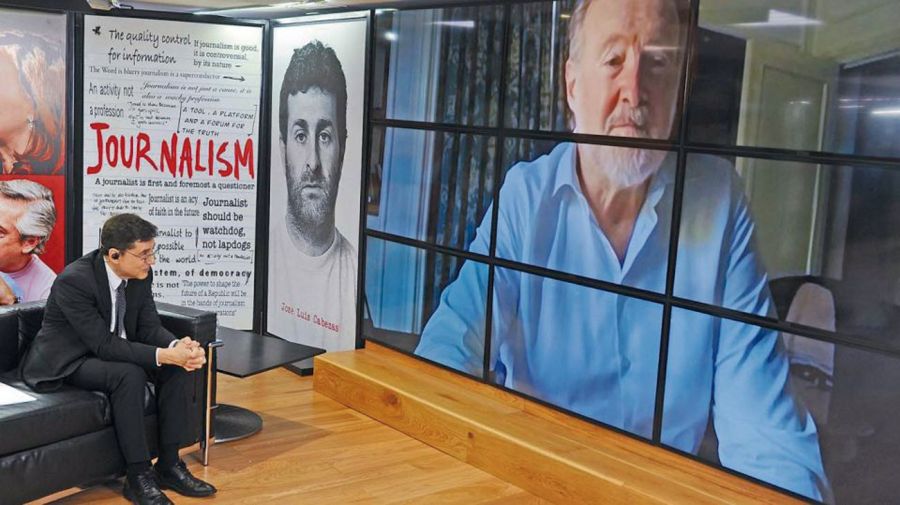
How do you explain the high percentage of vaccination [in Chile] while at the same time their quarantine measures are stricter than Argentina’s?
That’s a motive of many studies and opinions until now because there has not been enough time for empirical testing. On the radio I heard their Infrastructure Minister Alfredo Moreno saying that paradoxically the success of the vaccination campaign created a false sense of security, relaxing the health controls and now the consequences of that relaxation are being seen. In that sense Chile is no different to our country. They have a considerable underground economy which makes it necessary to go out and work, not respecting social distancing in transport, for example, and the consequences are plain to see. Another problem is summer. Here our January is in February. I’ve seen the photos and they are perfect examples of what not to do in a pandemic. To that should be added a third factor which has been verified in Chile. They are studying it more quantitatively, not just qualitatively, the presence of the Manaus, Rio de Janeiro and British variants which are more contagious and lethal. It’s a race against time. At the moment there are some seven million Chileans vaccinated, which means that the people of an age to die from the virus are no longer losing their lives – the oldest people are absolutely immunised. When herd immunity is created, this will all be over.
You’ve had it and you’re over 60. How was your experience?
We’d just done our PCRs and the results were emailed to us. First came the result of my wife Andrea – negative. Then my older son, Juan – negative. Then my younger son Joaquín - negative. Then mine, which came out positive. So much for the accumulated optimism from the joy which no contagion for any other members of the family had given me! But I reacted by sending them all far away and embarking on the common procedure. In Santiago, I wouldn’t say in Chile, but in Santiago they follow very strictly those of us who contract Covid-19. I submitted myself to all that. It was a very mild Covid-19, to be honest. Muscle pains on the first day with my sleeping patterns and inner clock in total disarray. Then many muscle pains and headaches. I never ran a fever. After two or three days it started fading away and on the fourth day I felt fine. Covid-19 treated me very kindly.
You said that President Sebastián Piñera “read the market wisely” when buying vaccines. Did being a businessman favour him?
A smart businessman. I know some businessmen who instead of making intelligent diagnoses, run up debt. He did indeed read the market very intelligently. He’s an asset for Chile. You don’t see things like talk of “a dictatorship of infectologists” or lawsuits against the president for poisoning the population with a given vaccine in Chile. The pandemic is everybody’s problem. Chile is a country of earthquakes, to which they are so accustomed that when anything damaging happens, they get together and get to work. Over and above Chile having a different approach to Argentina, Piñera read the market very well when there were still no vaccines. That was his merit. He understood that vaccines would be a scarce item with heavy demand so he commissioned the deputy foreign minister covering trade, a youngster called Rodrigo Yáñez, who drew up future contracts with all the labs he could. He did an extraordinary job. That’s why Chile has a quantity of vaccines permitting a very generous vaccine diplomacy. They’re making donations to Ecuador, Uruguay and Paraguay and offering them to Bolivia.
Which has a symbolic value because there is a long-standing conflict with Bolivia over the latter’s outlet to the sea.
We shall see how Bolivia responds to the offer but yes, there is a longstanding conflict and they do not maintain diplomatic relations.
Could we say that Chile, accustomed to earthquakes and isolated between the mountains and the sea, has been transformed into a country of endeavour while Argentina trusts more in its genius or is that an absurd simplification?
In no way is that an absurd simplification. When I was conversing very recently with Chile’s Foreign Minister Andrés Allamand, he told me an anecdote from the Salvador Allende presidency. Chile’s flagship the Esmeralda [the equivalent of Argentina’s frigate Libertad] sailed to Havana in the year 1971 when it was under blockade – the first ship to break the blockade by visiting the port. The captain said that Fidel Castro told him when they were leaving: “We’re not very good at production but if you’re in a fight, call us because there we’re the best.” I told Allamand that we Argentines are very good at coming up with ideas but then comes the hard part of effort so that we could make up a great partnership with Chile. We have a lot to learn from Chile.
But I would like to say the following. There are sectors in Chile with plenty of ideas although perhaps the distinguishing national characteristic is endeavour. And in Argentina there are many sectors capable of effort although perhaps the predominant trait is having very good ideas and then not having the patience or the generosity to carry them through.
How do you see the economic response to the pandemic on either side of the Andes?
Chile is sensitive to comparisons. While the Brazilian Economy Minister Paulo Guedes can say the most horrendous things about Argentina and we Argentines never even hear about it and quite frankly we couldn’t care less what other countries say about us, here it matters a great deal. Half the news in the papers is international. Chile is a hyperconnected country. But I don’t wish to compare. Chile is a country with credit. On top of the very sensible health measures taken by a sagacious Piñera, it is a country which can reach out to voluntary credit markets. That plays out in favour of its economic recovery although the economy did plunge and there was damage to the productive fabric. But it has far more favourable macroeconomic conditions and fundamentals than ours for moving ahead. You can see that, for example, in the advertising, which has not fallen off, neither on radio programmes nor in the streets. Chile has less problems than those facing the Argentine economy and Martín Guzmán has a more complicated job than the economy minister here, Ignacio Briones.
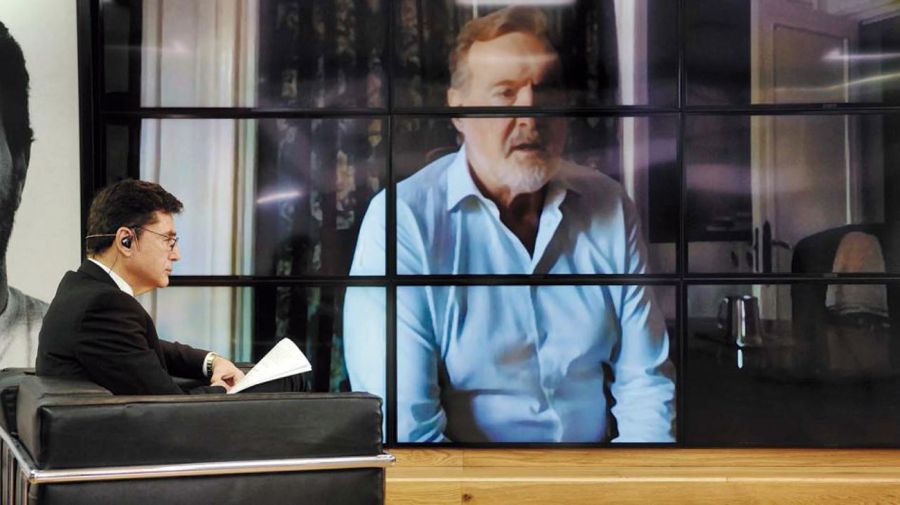
Has the extension of quarantine come under discussion in Chile?
Of course, Chile has adopted a pretty sophisticated focus, dividing the country into small areas with the most extreme quarantine measures never applied globally. This has contemplated the aspect of economic damage, taking providential decisions for Chile which we cannot emulate because we are not in the same conditions. The pension funds are private [like the former AFJPs en Argentina]. The government twice required them to hand over 10 percent of the money paid in by contributors so that their daily life is not so harsh. For that you need a capital stock we don’t have. Something else needs to be added. Doing things the market-friendly way for a long time has its advantages because the shares of the pension funds did not crash despite returning a fifth of their capital over the two occasions. This also has its complications because when people come to collect their pensions, they will naturally receive less. The pandemic has hit the entire world, some people more and some people less, some beforehand and others afterwards. There’s still no manual for the pandemic. Chile with its light economic structure based on services has possibilities for a rapid recovery. That’s my analysis.
Last October Cristina Fernández de Kirchner spoke of “functionaries who don’t function” and the next month your sister María Eugenia Bielsa was out of the government. How would you analyse her departure? Was it related to what CFK said?
The repercussions of that phrase are symptomatic of just how central Cristina Kirchner is to Argentine politics, which in some sense is “Cristina Kirchner-dependent,” especially the opposition. I don’t know what those people would do without Cristina. If any of us had spoken of functionaries not functioning as an abstract truth, nothing would have happened. But the opposition or those who disagree with her or who do not wish her well jumped on this. Neither does this tic of placing Alberto on one side, Cristina on another and Sergio Massa on another correspond to reality. Those who base their political analysis on that are wrong, proceeding from a false premise. The three of them have their division of labour, communicating much more frequently than is said.
I do not see the coalition as fragile. I see it with many problems because Argentina and the world have many problems but not from the side of Cristina. As for my sister’s exit from the Cabinet, I would ask you to exempt me from that question. She’s my sister and it hurts me. Out of respect to her, I’d prefer to stay silent.
I understand perfectly. The pundit Andrés Malamud said this week that “the functionary who does not function is Alberto Fernández,” adding that “Cristina is preventing the company from blowing up in his hands.” Is that the most important press take on Argentina from abroad?
Andrés Malamud is a person whose intellect I respect highly. I like everything he writes and always find his reflections valuable. If he speaks of Cristina trying to avoid the country exploding in her hands, that’s an ambiguous phrase which can be taken more than one way. It could mean that Cristina wants the country to blow up in somebody else’s hands or it could also be understood that she is making a great effort for it not to blow up.
What is not ambiguous is that about the functionary who does not function being the president. Where does this underestimating Alberto Fernández and overrating Cristina Fernández de Kirchner come from?
There are many ways to approach this. In politics I mistrust the simple because there the truth is rarely simple. There are layers upon layers. Political analysis has a lot to do with being able to detect that. What you, Jorge Fontevecchia, write is information with a sophisticated culture helping you and your reader to perceive those contrasts which fine-tune the diagnosis.
Alberto Fernández is very far from being a puppet. Alberto Fernández was a central figure in the Cristina-Néstor Kirchner tandem and today he is the president of Argentina. Naturally there are different visions regarding some issues, as to which basic economic elements to give priority to accommodate the macro numbers in an electoral year. That’s natural and what politics, due deliberation and decision-making are all about.
It’s ridiculous to think: “Alberto Fernández is a puppet, the person really in charge is Cristina and so we’re heading to becoming Venezuela.” That only arouses suspicions in me and does not answer anything for me.
Is that type of thinking the product of cognitive comfort because they fit in with the desires of the opposition?
My analysis runs elsewhere. Argentina has a very dangerous discontent. The middle classes (whether real or aspirational) which consumes goods and information and which forms opinions do not get on well with each other on a daily basis. We Argentines do not want what we should. Never a truer word than that for one Argentine nothing is better than another Argentine, as Juan Perón knew very well when he said it, appealing to one of the conditions required to make a nation one – sharing space in the present along with the glories and a compatible outlook towards the future. We do not love one another, we do each other a lot of harm. If somebody has a nice car, people think that it has been taken from them. Words are also deeds. When you use certain words, you’re doing what you say. That’s very dangerous.
Why did I speak of those social sectors? Because those who have less, the dispossessed have greater solidarity with less competition and disputes. Nobody envies the poverty of another. The media rhetoric in Argentina is highly virulent. It’s not normal how we treat each other, how politicians treat each other. It alarms me profoundly. There are things which people say about each other which prevent any subsequent dialogue, very serious things with consequences. It seems to me that there are reasons for that and we would do very well to think about those reasons and discuss them.













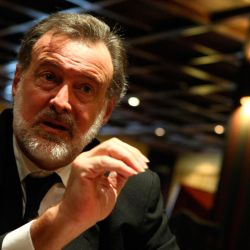







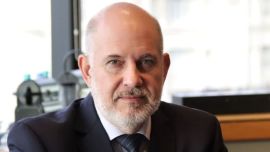
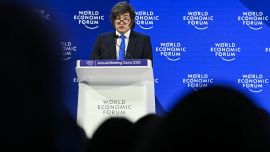



Comments